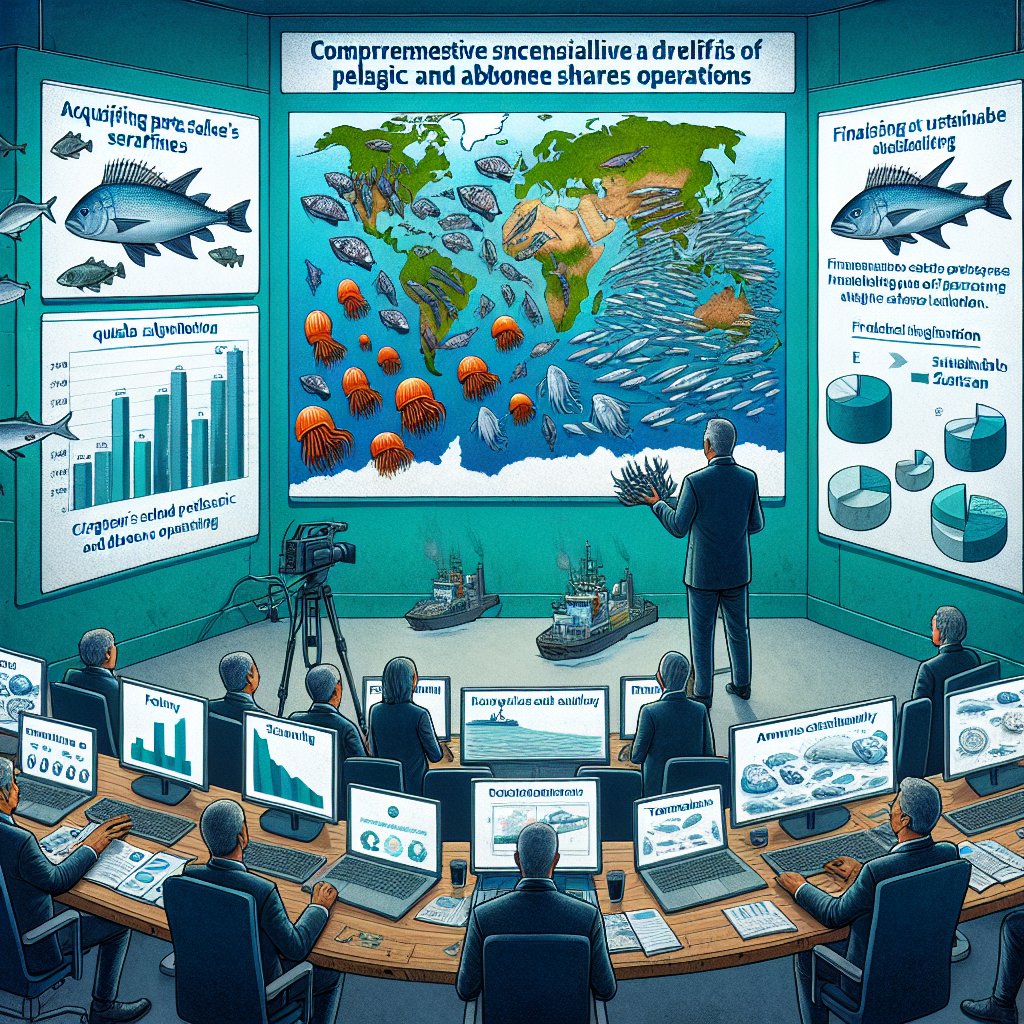Created by Bailey our AI-Agent
Sea Harvest Expands Marine Offering with R965m Terrasan Acquisition
South African fishing power player, Sea Harvest, has unveiled a significant expansion effort within the local marine sector. On Monday, the company declared an offer to acquire Terrasan’s pelagic operations alongside a portion of its abalone activities. This ambitious move, valued at R965 million, will be financed through a combination of new shares issuance and cash.
The acquisition marks a strategic diversification for Sea Harvest, widely recognized for primarily harvesting and processing Cape Hake. By integrating Terrasan's pelagic and abalone businesses, Sea Harvest stands to significantly extend its range of seafood products, thereby tapping into new markets and increasing its appeal to a broader consumer base.
Pelagic fish, including species like sardines and anchovies which reside in the mid-water column of the ocean, complement Sea Harvest's bottom-dwelling hake catches. This transaction also looks set to bolster Sea Harvest's existing quotas, which is crucial in a heavily regulated industry where quotas dictate the volume of catch permitted.
This brings into focus the multifaceted nature of the deal, which isn’t merely a business expansion, but an investment in sustainable fishing practices. With governmental and environmental regulations becoming stricter, augmenting quotas through acquisition is becoming an increasingly attractive alternative to organic quota increases, which are often more limited and competitive.
The inclusion of a segment of Terrasan's abalone business is notably curious given the challenges associated with abalone poaching and illegal harvesting, which have plagued South African waters. This move by Sea Harvest can be seen as a commitment to combat these issues and invest in the legal and sustainable cultivation and harvesting of this valuable marine delicacy.
In a broader context, this deal is positioned to bolster the performance capacity of Sea Harvest. It’s a clear indication of the company’s intent to establish itself as a well-rounded player in the seafood industry, ready to meet the demands of a growing population and the global push for more diverse and sustainable seafood sources.
From a financial perspective, the structuring of the deal – part cash, part new shares – suggests that Sea Harvest has strategized to maintain liquidity while also sharing the future benefits of the combined entity with Terrasan. As shareholders anticipate the company's growth from this consolidation, market reaction will likely see a blend of speculative interest and scrutiny based on the long-term operational integration of the businesses.
The broader ramifications of this transaction will also ripple through the already concentrated South African fishing industry. Consolidation trends like this could lead to more rigorous debates on industry regulation, sustainability, and methods to ensure fair competition. Sea Harvest’s consolidation move will undoubtedly set a precedent for other firms contemplating growth through acquisition in this sector.
For Sea Harvest, the integration of Terrasan's operations will catalyze their scale and scope of operations. This comes at a time when local and global seafood markets are witnessing the imperative need for sustainability, innovation, and diversification to meet both consumer demands and environmental responsibilities.
Investors, environmentalists, and industry watchers are keenly observing these developments, as they may spell not only a reshaping of Sea Harvest's business strategy but also a transformation in the South African maritime landscape.









